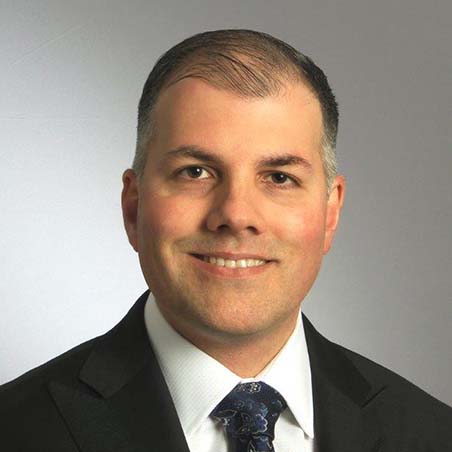Mark Fleming
Lawyer, WilmerHale
Bachelor of Arts (Hons.), German and English, 1994
More than anything I think that FYP (Foundation Year Program) is very good at teaching a kind of intellectual nimbleness.
As he was waiting to be called, Mark Fleming remembered the advice his mentor had given him: “Make sure you take the time to look around. Remember where you are. And say to yourself: This is really cool! (You are) about to have an experience that not a lot of lawyers get to have.”
Mark was getting ready to argue his first case before the Supreme Court of the United States. He did look around at the small but impressive room, at the curved bench on a raised dais behind which the nine jurists sat, at the lectern where he would stand to present his argument, just a few meters away from the dais.
And then it was his turn.
“Pretty soon after you begin, the questions start flying,” Mark recalls. And they come from any of the judges, on any topic related to the case. “You have to nimbly be able to look from one side to the other, recognize who it is speaking to you, answer the question as best you can and then get back to the argument … as seamlessly as possible. And you only have thirty minutes in which to do it.”
This is work that Mark has a passion for whether it is at the Supreme Court level or an appeal heard in a lower court. And he has been recognized as a real talent among US appellate litigators, recently presenting three oral arguments in the four days before the US Court of Appeals in Washington, DC. He has a keen ability to learn huge amounts about not just the legal issues in the cases he takes on at his firm WilmerHale, but about the clients and the industry in which they are involved, be it banking or fashion, immigration or patents.
Over his career, Mark has worked with a variety of issues and groups, nationally and internationally. Shortly after graduating law school, Mark worked as an associate legal officer in the Appeals Chamber of the International Criminal Tribunal for the former Yugoslavia. In more recent years, he has worked as co-counsel with the state of Massachusetts in the fight to have same sex marriage recognized and has represented prisoners from Guantanamo Bay.
“Working in law, you feel like you are helping someone navigate the legal system,” he says. “At the end of the day, someone makes a decision and something happens.”
Mark says it was at King’s where he began to develop the skills he would need at Harvard Law School and then in his career as a lawyer.
“More than anything I think that FYP (Foundation Year Program) is very good at teaching a kind of intellectual nimbleness, a kind of plasticity of the brain that makes you able to learn a whole bunch of different things with your native intellectual curiosity.”
Along with that nimbleness, Mark says, King’s also excels at developing persuasive writing. “The discipline of having to write a paper every two weeks was really valuable. It really helped me get on the road to the point where writing is something I feel I can do fairly readily. And it is a big part of my job now.”
But it wasn’t just the academic side of King’s that Mark remembers as essential to his current life. He joined the King’s Theatrical Society and appeared in plays throughout his time there, including the soap opera parody, Money, Power, Murder, Lust, Revenge and Marvelous Clothes, in which Mark played the part of a “diabolical plastic surgeon”. No doubt the thespian skills have helped him as a lawyer. But perhaps more importantly, the student who played the surgeon’s nurse, Rachel Renton, BA(Hons)’94, continues to play a major role in Mark’s life. The two were married in 1998, have two daughters, and live in the Boston area.
Updated: Aug. 2020
